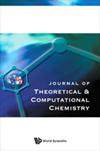Improving the classification performance with group lasso-based ranking method in high dimensional correlated data
IF 2.4
Q3 Computer Science
Journal of Theoretical & Computational Chemistry
Pub Date : 2020-05-01
DOI:10.1142/s021963362040009x
引用次数: 1
Abstract
The high-throughput correlated DNA methylation (DNAmeth) dataset generated from Illumina Infinium Human Methylation 27 (IIHM 27K) BeadChip assay. In the DNAmeth data, there are several CpG sites for every gene, and these grouped CpG sites are highly correlated. Most of the current filtering-based ranking (FBR) methods do not consider the group correlation structures. Obtaining the significant features with the FBR methods and applying these features to the classifiers to attain the best classification accuracy in highly correlated DNAmeth data is a challenging task. In this research, we introduce a resampling of group least absolute shrinkage and selection operator (glasso) FBR method capable of ignoring the unrelated features in the data considering the group correlation among the features. The various classifiers, such as random forests (RF), Naive Bayes (NB), and support vector machines (SVM) with the significant CpGs obtained from the proposed resampling of group lasso-based ranking (RGLR) method helped to boost the classification accuracy. Through simulated and experimental prostate DNAmeth data, we showed that higher performance of accuracy, sensitivity, specificity, and geometric mean is achieved by ignoring the unimportant CpG sites through the RGLR method.在高维相关数据中使用基于组套索的排序方法提高分类性能
Illumina Infinium Human methylation 27 (IIHM 27K) BeadChip检测产生的高通量相关DNA甲基化(DNAmeth)数据集。在DNAmeth数据中,每个基因都有几个CpG位点,这些分组的CpG位点高度相关。目前大多数基于过滤的排序方法都没有考虑组间的关联结构。利用FBR方法获取显著特征,并将这些特征应用到分类器中,以在高度相关的DNAmeth数据中获得最佳分类精度是一项具有挑战性的任务。在本研究中,我们引入了一种重新采样的群体最小绝对收缩和选择算子(glasso) FBR方法,该方法能够考虑到特征之间的群体相关性而忽略数据中的不相关特征。随机森林(RF)、朴素贝叶斯(NB)和支持向量机(SVM)等多种分类器通过对基于分组分类的排序(RGLR)方法的重采样获得了显著的cpg值,有助于提高分类精度。通过模拟和实验前列腺dna数据,我们发现通过RGLR方法忽略不重要的CpG位点,可以获得更高的准确性、灵敏度、特异性和几何平均值。
本文章由计算机程序翻译,如有差异,请以英文原文为准。
求助全文
约1分钟内获得全文
求助全文
来源期刊
CiteScore
1.70
自引率
0.00%
发文量
0
审稿时长
3 months
期刊介绍:
The Journal of Theoretical and Computational Chemistry (JTCC) is an international interdisciplinary journal aimed at providing comprehensive coverage on the latest developments and applications of research in the ever-expanding field of theoretical and computational chemistry.
JTCC publishes regular articles and reviews on new methodology, software, web server and database developments. The applications of existing theoretical and computational methods which produce significant new insights into important problems are also welcomed. Papers reporting joint computational and experimental investigations are encouraged. The journal will not consider manuscripts reporting straightforward calculations of the properties of molecules with existing software packages without addressing a significant scientific problem.
Areas covered by the journal include molecular dynamics, computer-aided molecular design, modeling effects of mutation on stability and dynamics of macromolecules, quantum mechanics, statistical mechanics and other related topics.

 求助内容:
求助内容: 应助结果提醒方式:
应助结果提醒方式:


